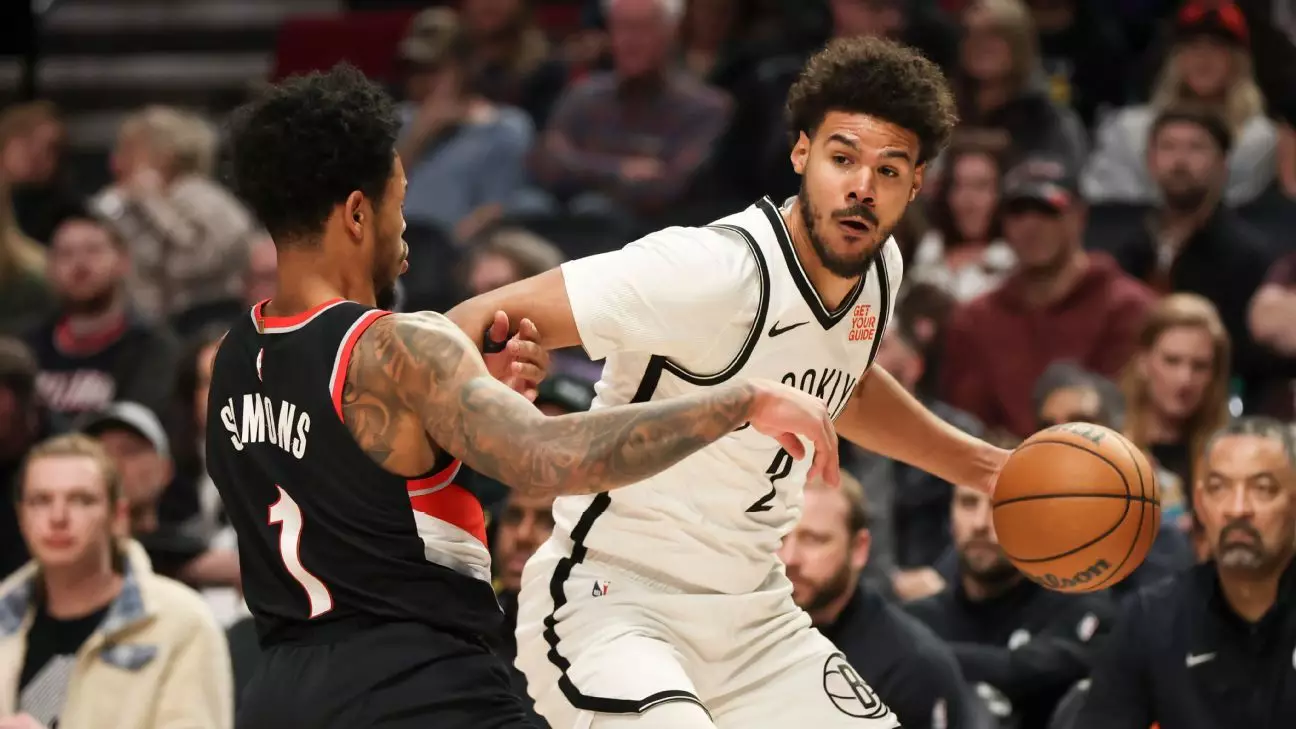The Denver Nuggets have embarked on a decisive journey to reshape their roster with a trade that signals a clear shift in their approach to building a contender. By sending Michael Porter Jr. and an unprotected first-round pick in 2032 to the Brooklyn Nets in exchange for Cameron Johnson, the Nuggets are making a statement that extends beyond simply changing players—it reflects a new vision under their revamped front office led by Ben Tenzer and Jon Wallace. This move isn’t merely transactional; it represents a purposeful recalibration aimed at strengthening team chemistry and flexibility around franchise cornerstone Nikola Jokic.
The Financial and Tactical Dimensions Behind the Trade
This trade carries significant financial implications. Porter, despite his talent and role in Denver’s championship run, carries a hefty contract with around $79 million owed over the next two seasons, including $38.3 million due in 2025-26. In contrast, Cameron Johnson’s contract is notably more manageable, with $21 million and $23 million owed over the next two years, respectively. From a salary-cap perspective, this financial realignment grants Denver more breathing room to make additional roster moves—crucial in maintaining a competitive edge in the loaded Western Conference.
Tactically, the addition of Johnson brings a different energy and skill set. Known for his efficient shooting and strong perimeter defense, Johnson has evolved into a reliable two-way forward who can stretch the floor, a quality the Nuggets sorely need to complement Jokic and Murray’s playmaking-heavy style. His breakout 18.8 points per game last season with solid three-point accuracy reshapes Denver’s offensive dynamics to be more versatile and less predictable.
Re-evaluating Michael Porter Jr.’s Role and Impact
Porter’s departure marks a complicated but necessary crossroads for Denver. Although his production last season—18.2 points and 7 rebounds per game—demonstrated his potential, consistent health and fit within the team’s evolving identity have been persistent concerns. The Nuggets are opting to invest in better alignment over individual talent, indicating a matured perspective that chemistry and role clarity trump sporadic brilliance. Porter’s ability to stretch the floor remains attractive for Brooklyn, highlighting both teams’ differing needs and strategic priorities.
Adding Veteran Stability and Continuity Through Bruce Brown
Complementing the deal, Denver has also re-signed Bruce Brown to a veteran minimum deal. Brown’s understated yet essential presence during the Nuggets’ 2023 championship run cannot be overstated. His locker room influence, defensive versatility, and ability to seamlessly mesh with Jokic and Murray make him an invaluable asset. It’s a prudent move that balances the excitement of a marquee trade with the grounded stability of seasoned veterans.
Leadership Changes Signal Denver’s Ambitious Future
This trade isn’t happening in a vacuum. The Nuggets recently overhauled their leadership, firing coach Michael Malone and GM Calvin Booth late in the season, aiming to inject fresh impetus into the franchise. Promoting David Adelman to head coach reflects a subtle but significant shift towards a more adaptive and contemporary basketball philosophy.
Denver’s front office is clearly willing to challenge the status quo. The combination of shedding a bulky contract, acquiring a versatile forward, retaining locker-room staples, and embracing new leadership suggests a franchise eager to refine its blueprint for sustained excellence rather than resting on the laurels of a championship season. This boldness, marked by deliberate and thoughtful moves, sets an exciting tone for the Nuggets’ next chapter.


Leave a Reply